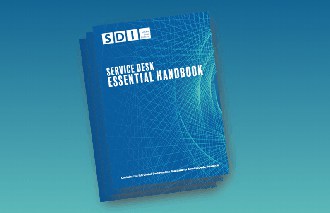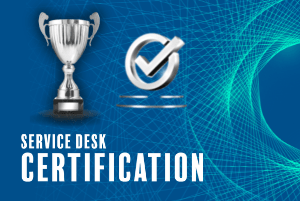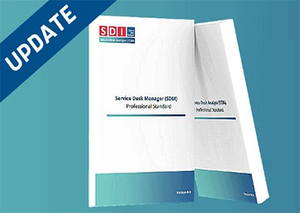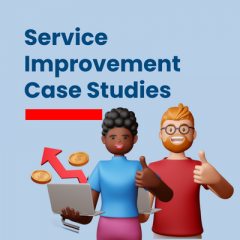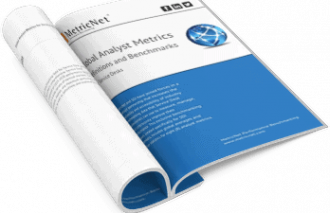Brand New Metrics Workshop!
Who is it for?
This metrics workshop is for managers, team leaders or individuals responsible for reporting on service desk and support operational effectiveness and performance.
It will also benefit those considering or undertaking SDC accreditation.
What is it about?
This one day workshop based on the SDI Service Desk Certification (SDC) standards for management information and reporting, with a focus on understanding key service desk metrics and their value in the support environment.
What will I get learn?
- 36 SDI recommended metrics
- Report definition document
- Analysis exercises
- Balanced scorecard template
- Advice and guidance from an experienced service desk and support practitioner
After the course delegates will be able to:
- Explain the relationship between critical success factors, key performance indicators and metrics
- Identify key service desk metrics and their purpose
- Apply analytical methods for trending and forecasting
- Bundle and cross-analyse metrics to gain deeper insights
- Explain the role of utilisation metrics in resource optimisation
- Design a balance scorecard for teams and individuals
- Add insightful commentary to management reports
- Ensure a continual service improvement focus in reporting
Course Outline
SDI’s Customer Satisfaction Surveys course overview in brief:
- Measures of success – understand the relationship between your mission, critical success factors, key performance indicators and metrics in demonstrating business value and driving improvement.
- Types of Reports – consider the types of reports that may need to be produced and the best way to present information to aid decision making
- Data sources – understand the difference between qualitative and quantitative data, how data can be collected and the importance of being able to trust the data you have.
- Key service desk metrics – review the types and purpose of these and understand their importance in managing a service and support operation.
- Utilisation – consider the benefits of measuring utilisation and understand how to use them without demotivating support staff.
- Analytical methods – explore the three main types of data analytics and the power of trending and forecasting.
- Subsetting – consider breaking down high level data sets to offer additional perspectives.
- Bundling – identify and cross-analyse to gain a deeper insight into what is really going on.
- Balance scorecards – understand the use of balanced scorecards and learn how to design one.
- Documenting the approach to reporting – eliminate dependency on key individuals by documenting your approach to reporting.
- Reducing manual effort – consider the use of report design documents for gathering requirements so that reports or the data required can be automatically produced.
This course can also be delivered in-house: please call 01689 889 100 for more details
2018 Course Calendar | Download Brochure for course outline
